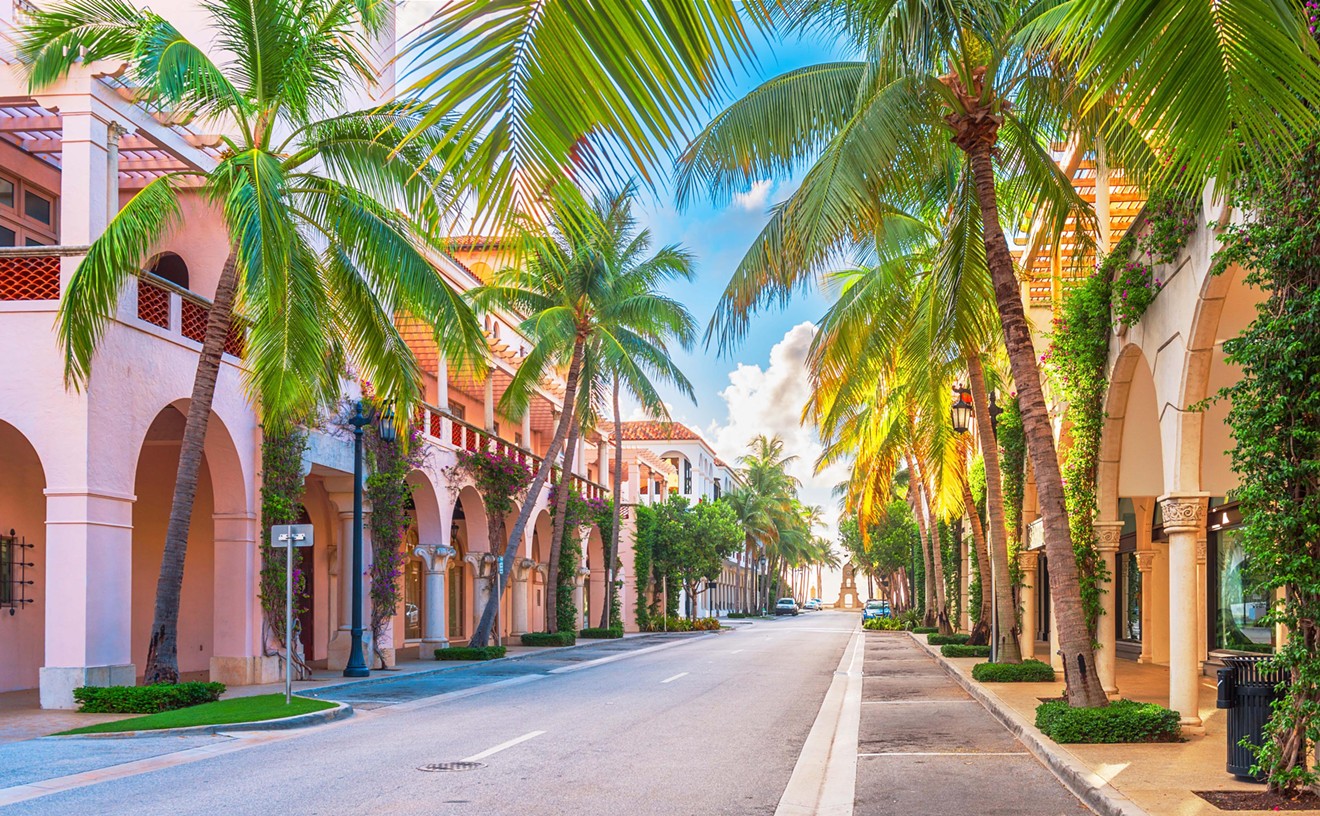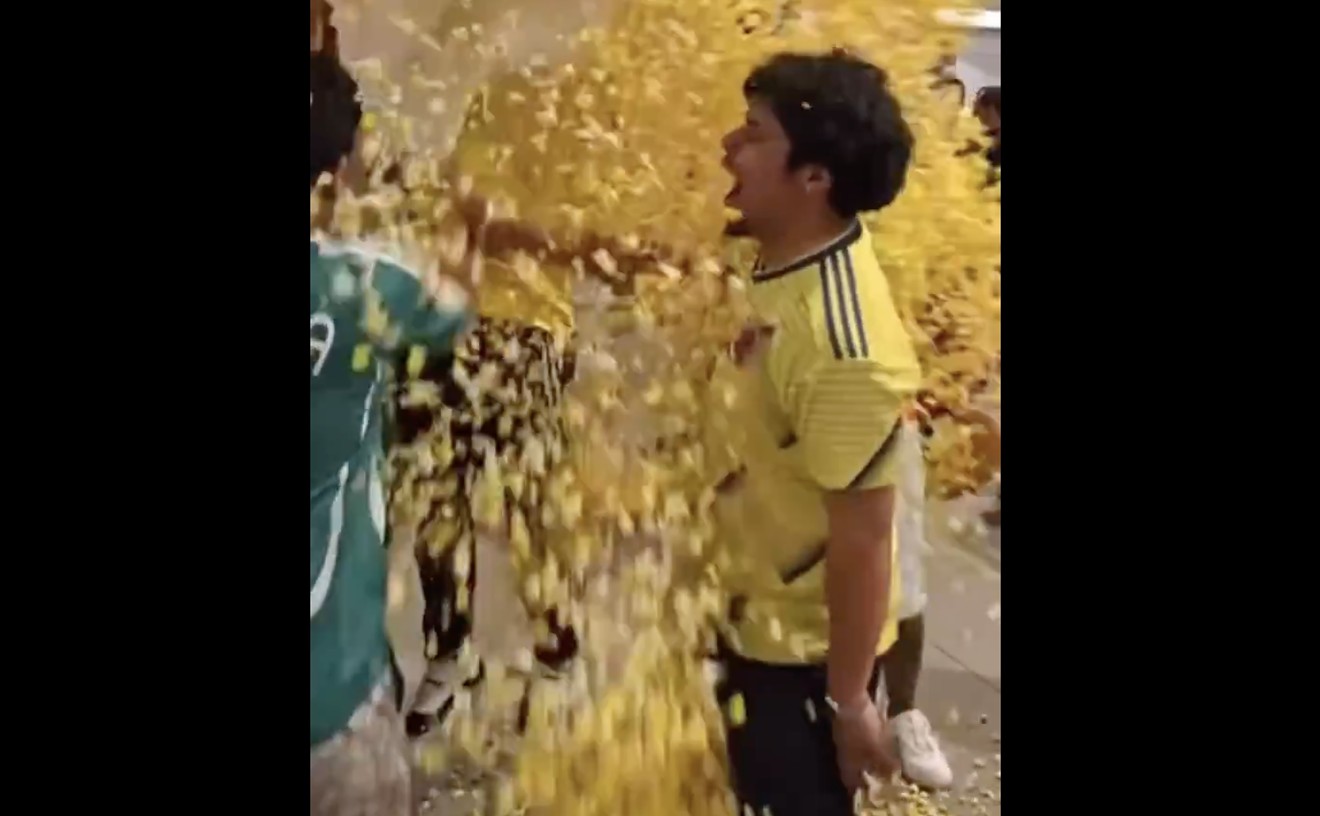In the meantime, a federal judge yesterday ruled that the way Florida prevents felons from voting is unconstitutional. In a scathing ruling, U.S. District Judge Mark Walker forced the state to rework its disenfranchisement process no matter how people vote in November, ruling that the current system violates the Fourth and 14th Amendments of the Constitution. The ruling came after eight former felons, led by ex-prisoner James Michael Hand, sued Gov. Rick Scott after he denied their clemency appeals. (Notably, Walker upheld the state's right to restrict voting rights for felons in general — he just threw out the specific method Florida is using.)
"If any one of these citizens wishes to earn back their fundamental right to vote, they must plod through a gauntlet of constitutionally infirm hurdles," Walker wrote. "No more. When the risk of state-sanctioned viewpoint discrimination skulks near the franchise, it is the province and duty of this Court to excise such potential bias from infecting the clemency process."
Currently, if you want to get back your right to vote in Florida after being arrested for, say, carrying some weed, you have to file a petition. From there, it's up to state officials to arbitrarily decide whether you deserve the right to vote again. State law lets the governor deny felons clemency "at any time, for any reason." The Florida governor presides over this process in person: Last year, political comedian Samantha Bee compiled a depressing montage of Scott denying people the right to vote to their faces. During his time in office, Scott has restored rights to a stunningly paltry number of people, almost certainly for political reasons.
Walker, a federal judge in North Florida, struck that process down late yesterday afternoon, writing that the method was discriminatory and subject to the politicized whims of random lawmakers, who obviously tend to restore voting rights to people from their own parties.
Scott's spokesperson told reporters last night he will likely file an appeal.
Importantly, the ruling does not automatically restore voting rights to the state's ex-felons. Walker merely struck down the process by which former felons need to reapply for the right to vote — the state can still technically deny felons voting rights but must come up with a fairer process for people to apply to have their rights restored. (Florida voters can make this entire subject moot in November by voting for Meade's amendment.)
Florida is one of only three states where felons are banned from voting for life. Thanks to the racist law, one in four black Floridians cannot vote. One-quarter of the nation's disenfranchised felons lives in Florida. To be blunt, that was the purpose of the law: W.J. Purman, one of the state legislators who pushed hardest for the disenfranchisement laws, said the rules “kept Florida from becoming ‘niggerized.'" (The laws also prevent ex-felons from serving on a jury or running for office.)
Naturally, as the black-community-targeted War on Drugs escalated, larger and larger numbers of black and brown Americans lost the right to vote as cops began rounding up even more nonviolent offenders in the latter half of the 20th Century. (There's also a loophole that lets rich, overwhelmingly white felons get around the ban: Felons can still donate as much cash to political campaigns as they want.)
Besides being steeped in racism, Florida's method of restoring voting rights is completely at the whims of theThe Florida senator who passed felon disenfranchisement in 1868 said it was designed to “prevent the state from becoming n*ggerized.” They knew exactly what they were doing. https://t.co/t26WEVEOri
— Samuel Sinyangwe (@samswey) December 20, 2017
The process was actually somewhat easier to navigate under Scott's predecessor, Charlie Crist: In 2007, Crist updated the law so certain felons automatically had their rights restored. When Scott took office in 2011, he reversed Crist's decision.
Walker attacked the randomness of that process yesterday. In a blistering order, he said politicians can easily abuse the process to "shape the electorate" by denying people with opposing views the right to vote. Walker noted that Scott has even bragged during clemency hearings that he can just "do whatever" he wants:
Florida’s Executive Clemency Board has, by rule, unfettered discretion in restoring voting rights. “We can do whatever we want,” the Governor said at one clemency hearing. One need not search long to find alarming illustrations of this scheme in action. In 2010, a white man, Steven Warner, cast an illegal ballot. Three years later, he sought the restoration of his voting rights. He went before the state’s Executive Clemency Board, where Governor Scott asked him about his illegal voting.(Later in his order, Judge Walker noted that his court found four other cases where Scott denied the right to vote to four black people convicted of the same crime as Warner.)
“Actually, I voted for you,” he said. The Governor laughed. “I probably shouldn’t respond to that.” A few seconds passed. The Governor then granted the former felon his voting rights.
Walker held that voting constitutes protected political speech under the First Amendment and that the Constitution doesn't allow states to wildly violate the Bill of Rights according to the whims of a single governor.
“In Florida, elected, partisan officials have extraordinary authority to grant or withhold the right to vote from hundreds of thousands of people without any constraints, guidelines, or standards,” the judge wrote. “The question now is whether such a system passes constitutional muster. It does not.”













